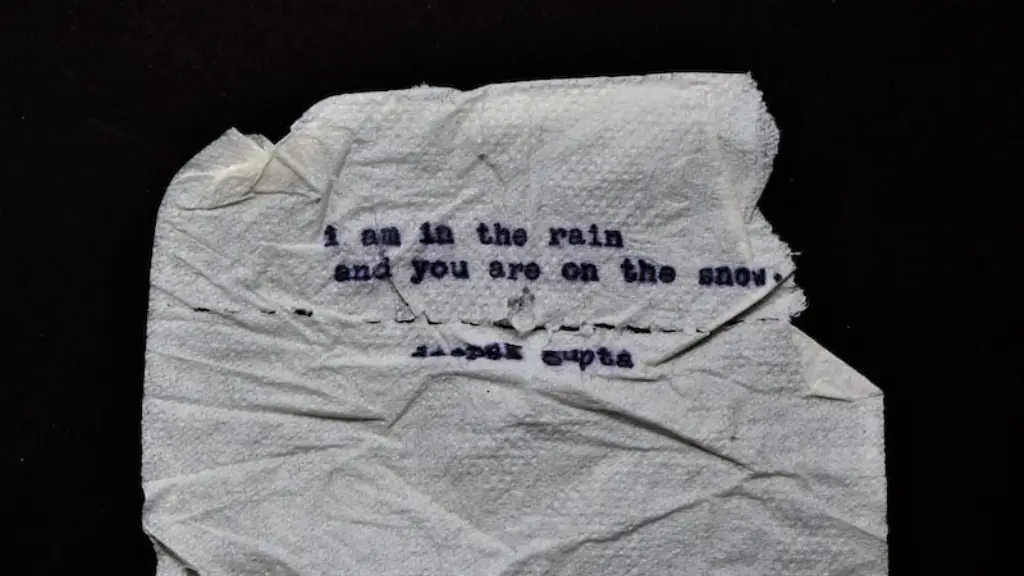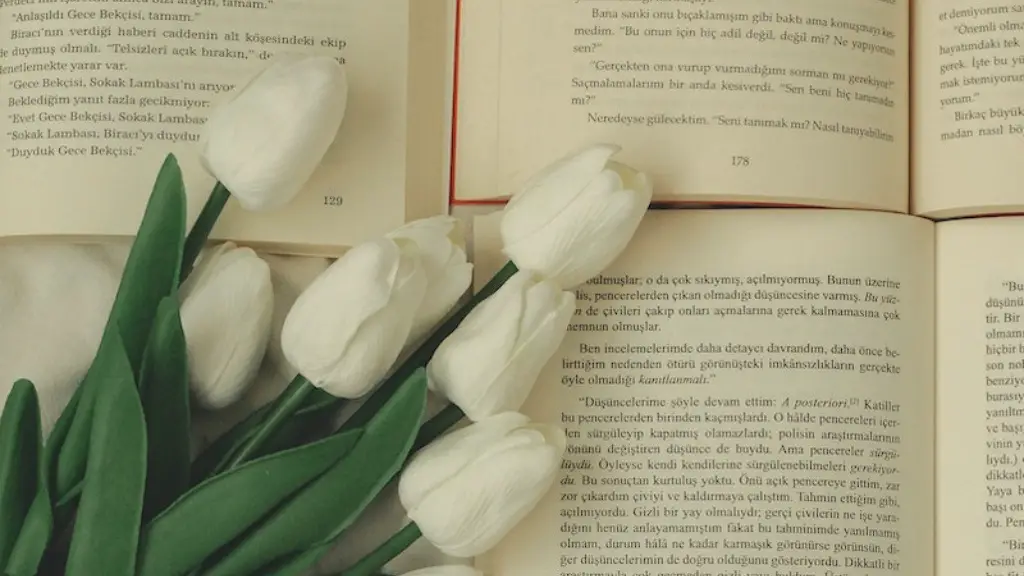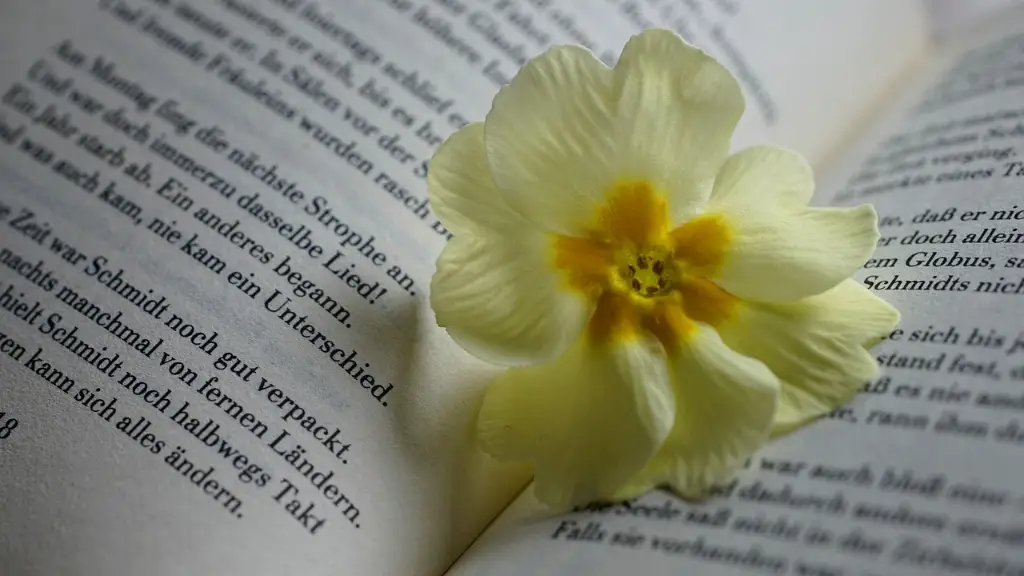A Child’s Garden of Poetry
Poetry offers children a wonderful way to express their emotions, thoughts and feelings. Whether they are writing the words themselves or listening to it read aloud, poetry can have profound effects on young minds. Poetry can improve language, listening and writing skills, giving children a feeling of accomplishment and increasing their motivation to write. So, how can parents and educators entice children to explore the world of poetry?
One way is by encouraging them to find poems that speak to their unique experiences. Introducing poems about common life events specific to their age group can be a great starting point, as it allows them to relate to the content and make it more meaningful. Encourage children to explore traditional and modern poetry, including ballads, rhythm and rhyme. With a plethora of collections from various poets and ages, there is something for everyone to explore.
Involving parents and teachers in the process of reading and discussing poetry can also help to foster an appreciation of this art form. Incorporating teaching moments into the discussion can help children to explore deeper meaning and become more deeply in tune with the spoken word. Parents and teachers should also be familiar with the range of poetry so that they may guide children in the right direction and offer guidance when needed.
When possible, attending poetry slams, live literature readings and open mic nights are great ways for children to engage with and appreciate poetry. This allows children to observe and interact with a diverse set of poems and topics. As these events create a more interactive atmosphere, they can help children become more creative with their poetry and become more involved in writing it.
Poetry can also be a great way to connect children across different generations. Introducing them to poems of the past, written by not only classic authors, but also family members, can be a great way to expand their understanding and appreciation of the art form.
Finally, encourage children to explore the creative nature of writing poetry. This will help them to become more confident in their writing ability and create a sense of pride in their work. Offering them fresh paper and various writing implements, can help to bring a tactile experience to their writing. Above all, make the process of reading and writing poetry fun, engaging and meaningful.
Writing Poetry
Giving children the opportunity to express their emotions through writing can help to increase their confidence as a writer and storyteller. Allow them to start with simple word jumbles and create stories from them. This will help them to become more familiar with different words and increase their vocabulary. Additionally, by having them write stories on their own, they can learn to find their own voice and to express their own experiences and perspectives.
Having them write their own poetry, is also a great way to help them learn creative writing skills. When starting out, have them write a list of simple words and phrases that they enjoy or find interesting. From there, help them to structure the poem on the page. Encourage them to use metaphors, similes, and rhymes to bring their poem to life. Along the way, help them to proofread their work and make corrections where necessary.
Allow them to read and perform their work for peers or family members. This will help increase their reading confidence and further reinforce the ideas and content of the poem. Attend local poetry slams and open mic readings to gain greater appreciation for their work and offer feedback from others.
Exploring Poetry
Depending on the age group, exploring specific genres of poetry, such as narrative, free-verse, and haiku, can help to broaden their understanding and appreciation for the art form. To introduce children to poetry, it is important to have them start with pieces that they can relate to and understand.
Allowing them to draw connections between the poems they explore and their own lives can help to bring more depth and understanding. Furthermore, participating in activities, such as drawing different shapes to represent the poem’s content is another great way to help them explore and be creative with the material.
Ultimately, exploring the range of poetry available, in different eras and on numerous topics, will help to develop an appreciation and understanding of this art form.
Finding Enchantment in Poetry
Reading out loud can be a great way to enjoy poetry and to generate a sense of enchantment and mystery for the little ones. This is especially the case, if the poem is read in a setting similar to what the poem is describing.
Storytelling can also be a great way to bring a beloved poem to life. Through this activity, children can immerse themselves in the reading and experience a different side of the poem. Ultimately, this will help them to become more familiar with the poem’s content and generate an excitement to explore the world of poetry.
Introduce children to different forms of art tied to poetry, such as photography, music and dance, to help them understand and appreciate poetry in a more creative and non-threatening manner. Guiding them through their own creative process of creating a visual representation of their favorite poems will help them to become more familiar with the language and content of the poem. Creating art to accompany the poem can also help them to explore the poetic words more deeply and to become more engaged in the topic.
Creative Projects
Creative projects are a great way to allow children to express themselves and increase their understanding and appreciation for poetry. Having the children create their own collections of poems and short stories can help to ignite their imagination and develop their writing skills. Additionally, hosting a poetry corner in their room, giving them the option to explore and revisit poems of their choice, can help to generate interest in writing and explore the range of emotions and perspectives they are capable of expressing.
Collaborating with peers and other adults in the writing process can also help to spark creativity and encourage a sense of collaboration. By creating art projects or unique performance pieces to accompany the poem, children can gain an in-depth understanding of the content of the poem and also become more active participants in the process. Invite respected poets from different backgrounds to read to the children and expand their knowledge and understanding of the poetry world.
Finally, creating a family reading circle can help to reinforce the appreciation of poetry and increase the understanding and usage of vocabulary. Furthermore, by connecting the learnings from the family circle to the poems the children read, it can help them see their life experiences and emotions through words, helping to further deepen the connection with poetry.
Conclusion
Enabling children to explore and engage with poetry in a variety of creative and meaningful ways can help to foster an appreciation and understanding of the art form. Through encouraging them to write their own pieces, discover traditional and modern poems, explore different interpretations, and get involved in the creative process, they can develop their writing and reading skills and increase their confidence in expressing themselves. Poetry is an engaging, creative and rewarding hobby and should be incorporated into every child’s life.




